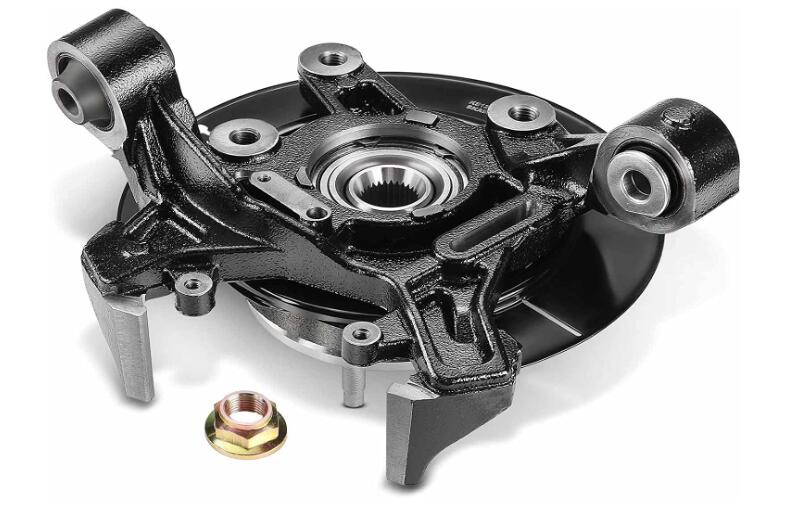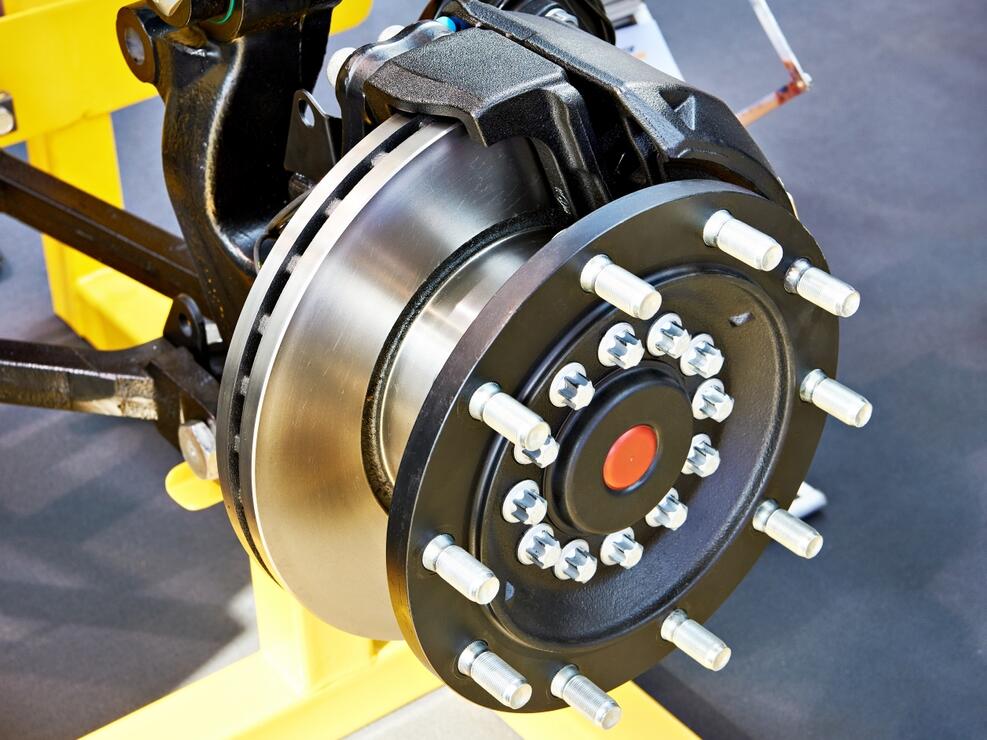Introduction
Although small, wheel bearings are pivotal in a vehicle’s overall performance and safety.
Ensuring their optimal functionality is a task filled with challenges, many compounded by external factors like environmental conditions and driving habits.
This case study will delve deep into a real-life scenario where performance challenges in wheel bearing applications were expertly addressed, providing invaluable insights into best practices and innovative solutions.
Background: Setting the Stage
AutoCorp, a leading car manufacturer, noticed an unusually high failure rate in the wheel bearings of a recently launched model.
These failures, reported in colder climates, led to significant warranty claims and affected brand reputation.
The challenge was twofold: diagnosing the root cause and implementing a viable solution without skyrocketing costs.
Identifying the Problem: A Multi-Pronged Approach
- Data Collection: AutoCorp started by collating data from affected vehicles, focusing on mileage, maintenance history, and specific driving conditions. This helped narrow down potential external factors.
- Laboratory Analysis: Failed wheel bearings were subjected to rigorous laboratory tests. These tests aimed to replicate the conditions these bearings experienced before their failure.
- End-User Feedback: Direct feedback from drivers provided invaluable subjective insights. Some reported hearing unusual noises, while others felt vibrations, indicating potential issues before complete failure.
The problem was traced back to material brittleness at lower temperatures and lubrication that became less effective in colder climates.
Addressing Material Brittleness
- Material Evaluation: AutoCorp initiated a comprehensive review of the materials used in the wheel bearings. The key was to find a material that retained its strength and resilience even at colder temperatures.
- Exploring Alternatives: Advanced alloys that showed promising resilience under temperature variations were considered. After rigorous testing, a chromium-based alloy emerged as a viable alternative.
- Implementation: Transitioning to a new material in an ongoing production line is challenging. However, by streamlining the process and working closely with suppliers, AutoCorp made the switch seamlessly.
Rethinking Lubrication
- The Role of Lubrication: Wheel bearings, when operating, generate friction. Proper lubrication ensures that this friction doesn’t lead to premature wear. Traditional lubricants might lose their viscosity in colder climates, reducing their effectiveness.
- Synthetic Alternatives: AutoCorp collaborated with leading lubricant manufacturers to explore synthetic options for colder environments. These lubricants maintain their properties across a wide temperature range, ensuring consistent performance.
- Feedback Loop: Once the new lubricant was introduced, AutoCorp established a feedback loop with service centers in colder regions. This helped monitor the real-world efficacy of the solution.
Ensuring Quality Control and Monitoring
After implementing the solutions, AutoCorp faced the challenge of ensuring consistent quality across all manufacturing units.
- Training: AutoCorp invested in comprehensive training programs for its staff. This ensured that the new materials and lubricants were handled and applied correctly.
- Quality Assurance Protocols: New QA protocols were introduced, especially on wheel bearing tests that simulated colder climates.
- Ongoing Monitoring: AutoCorp established a system of ongoing monitoring, using both onboard diagnostic tools in the vehicles and feedback from service centers. This ensured that any emerging issues were promptly addressed.
Lessons Learned and Broader Implications
The AutoCorp case provides a solution to a specific issue and lays down broader principles that can guide other manufacturers in addressing similar challenges.
- Importance of Data-Driven Decisions: One of the first steps AutoCorp undertook was data collection, demonstrating the value of evidence-based decision-making in the automotive industry. Accurate data helps pinpoint the exact nature and extent of the problem, ensuring that solutions are targeted and effective.
- Collaboration is Key: By working closely with lubricant manufacturers and material experts, AutoCorp was able to find the best solutions swiftly. Such collaborations combine specialized knowledge, resulting in more informed and innovative solutions.
- Customer-Centricity Pays Off: Taking end-user feedback seriously was another smart move by AutoCorp. Often, the users of a product can offer insights that might be overlooked in a lab setting. Companies can enhance brand loyalty and reputation by valuing and acting upon customer feedback.
Future Proofing: Beyond Immediate Solutions
While addressing the immediate challenge is critical, forward-thinking companies also consider future implications.
- Continuous R&D: AutoCorp’s issue highlighted the need for continuous research and development, ensuring products remain compatible with changing environmental conditions and user requirements.
- Scalability of Solutions: When devising solutions, it’s essential to consider their scalability. As AutoCorp expanded into new markets with varying climates, the solutions implemented must be adaptable and effective across diverse conditions.
- Investment in Training: The importance of human capital can’t be overstated. Ensuring that staff, from the manufacturing floor to the sales team, are well-informed and trained can significantly affect product quality and brand perception.
Reflecting on Broader Industry Trends
AutoCorp’s challenge with wheel bearings is a microcosm of broader trends and challenges in the automotive industry. With increasing globalization, companies cater to diverse markets, each with unique conditions and challenges.
- Globalization and Localization: While companies aim for global reach, there’s a growing need for localization in solutions — ensuring products are tailored to meet regional requirements.
- Technological Advancements: With the rise of the Internet of Things (IoT) and telematics, real-time data collection from vehicles can provide manufacturers instant feedback, allowing for more rapid responses to emerging issues.
- Sustainability: The automotive industry is under increasing pressure to adopt sustainable practices. From materials used to manufacturing processes, every aspect is under scrutiny. AutoCorp’s move to a more efficient lubricant and material addressed the immediate problem and reflected a step toward greater sustainability.
Recommendations for Other Manufacturers
Drawing insights from AutoCorp’s experience, several actionable recommendations can be provided for other manufacturers:
- Invest in Advanced Diagnostic Tools: The earlier a problem is identified, the easier (and often less expensive) it is to resolve. By investing in advanced diagnostic tools, manufacturers can detect anomalies before they escalate into significant issues.
- Engage with User Communities: Creating user communities, either online or offline, can serve as an effective feedback mechanism. Such platforms can provide unfiltered feedback directly from the users, helping manufacturers understand real-world performance and concerns.
- Cross-functional Problem Solving: Encourage teams from different departments to collaborate when addressing a challenge. A multidisciplinary approach can yield comprehensive solutions considering all aspects of a problem.
- Adopt a Proactive Approach to Quality Assurance: Instead of waiting for problems, manufacturers should predict potential pitfalls and address them preemptively.
The Role of Partnerships in Overcoming Challenges
AutoCorp’s strategy highlighted the importance of robust partnerships in addressing manufacturing challenges.
- Supplier Relations: Building strong relationships with suppliers ensures a steady supply of quality materials. Regular engagements, quality audits, and collaborative problem-solving can enhance the efficacy of the supply chain.
- Collaborate with Research Institutions: Partnerships with academic and research institutions can provide access to cutting-edge research and innovations that can be applied to real-world manufacturing challenges.
- Engage with Regulatory Bodies: By collaborating with regulatory bodies and standard-setting organizations, manufacturers can stay ahead of the curve, ensuring that their products meet and exceed industry standards.
A Look into the Future: Preparing for New Challenges
The automotive industry is in flux, with evolving consumer demands, technological advancements, and a pressing need for sustainability.
- Embracing Electrification: As the world moves towards electric vehicles (EVs), manufacturers must prepare for new challenges, from battery technology to entirely new drive train configurations.
- Investing in AI and Automation: Artificial Intelligence (AI) and automation can drastically improve manufacturing processes, quality control, and predictive maintenance, ensuring peak performance of components like wheel bearings.
- Sustainability and Circular Economy: Manufacturers should focus on creating products with minimal environmental impact, both in production and end-of-life disposal or recycling.
Final Words: The Never-Ending Quest for Excellence
AutoCorp’s experience with wheel-bearing challenges epitomizes the journey of the modern automotive industry – a journey marked by challenges but also immense opportunities.
It reinforces the belief that with innovation, collaboration, and a relentless pursuit of excellence, even the most daunting challenges can be turned into milestones of success.
For manufacturers worldwide, the key takeaway is clear: Embrace change, invest in continuous learning, and always keep the end-user at the heart of every decision.
In doing so, the road ahead can be navigated with confidence and foresight, no matter how uncertain.
The drive towards automotive excellence is perpetual, and with the right approach, it promises rewards beyond profitability, shaping the future of mobility for generations to come.




